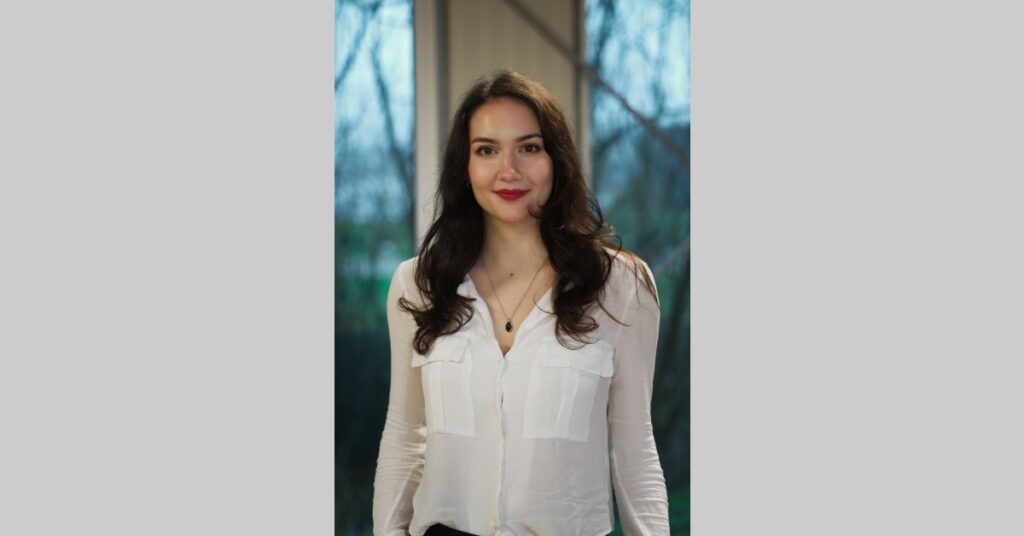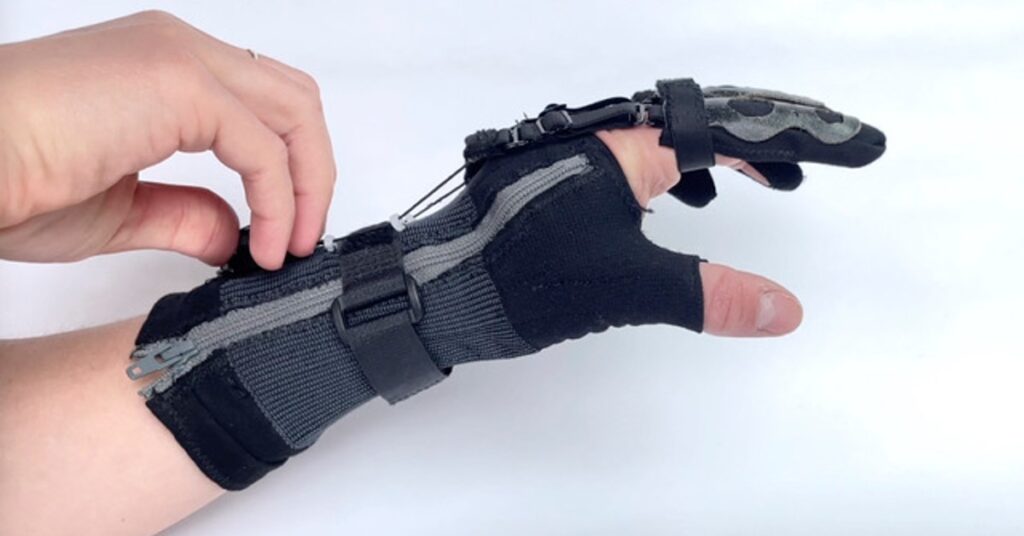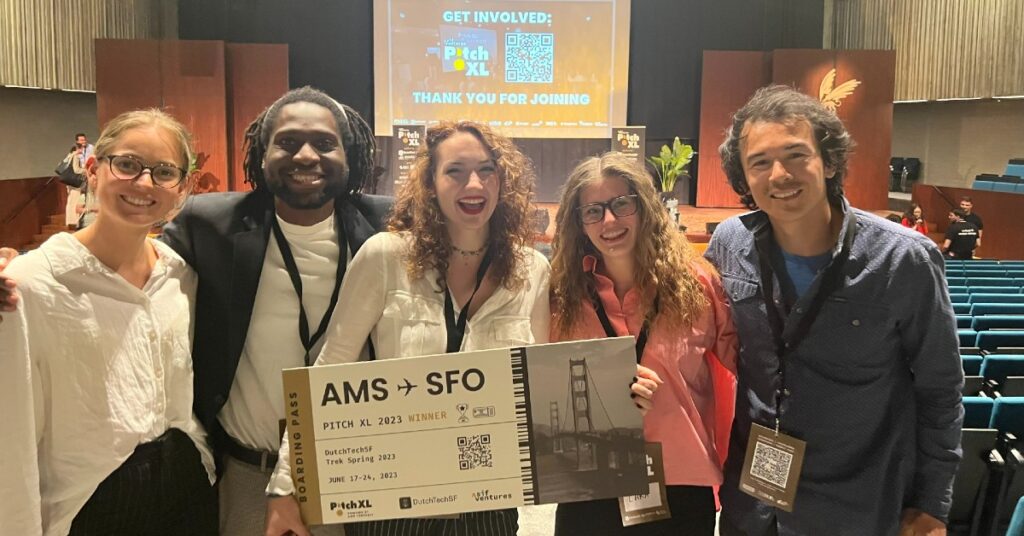What does a Dutch startup and the word MAD have in common? An intriguing prospect turning that word from offence to assist.
Founded in 2021, Amsterdam-based Madglove is a medical aid startup trying to help stroke patients overcome hand spasticity.
A study by the American Stroke Association states that 25 to 43 per cent of survivors have spasticity in the first year after their stroke.
However, the care available for them at home is not universally accessible and Madglove, a clever combination of Medically Assisted Device (MAD) and glove, wants to solve this challenge.
Madglove, our startup of the month, is also a poster child of a diverse team on a common mission to solve a challenge that has not received the universal attention it deserves.
Meeting the founders

The idea of working on a hand glove as a device to overcome hand spasticity first struck CEO and co-founder Madalina Riurean when she was studying stroke, working with people and hearing their stories in her native country, Romania.
“I noticed they could use support in their home,” she says, adding “and that there may be a solution for that, for them to feel more included, and help them reach their potential.”
After building initial prototypes and testing them using the box and block test on 20 patients, Riurean saw the potential of her solution.
With a proof-of-concept in hand, she needed to find her co-founders and she met not one but three equally talented human movement scientists during an entrepreneurship course.
With a background in physiotherapy, Riurean joined VU Amsterdam, where she is currently finishing her Human Movement Science master’s thesis by conducting a technical feasibility study using the glove.
At VU Amsterdam, she also found her co-founders with human movement scientists Cara Knott, Tobi Makinde, and David Gotti joining the mission.
Knott, who is the chief product officer, has a background in neuroscience and a master’s in Human Movement Science. She is also responsible for development of newer Madglove prototypes.
With a master’s in Human Movement Science, Makinde looks after customer recruitment, strategic partnerships, and communications.
Gotti, who has master’s in both management and Human Movement Science, is responsible for marketing.
However, the team wasn’t completely formed until Sitah Heijnen, an industrial design engineer with a master’s in marketing, joined as Creative Director.
“I pitched them the rough concept of the glove and they were immediately on board,” says Riurean.
Accessible care
While there are no individual numbers for how many stroke patients suffer with hand spasticity in Amsterdam or the Netherlands, Gotti says around 25 per cent of people having a stroke with “suffer from the long-term consequences of spasticity.”
The real challenge, probably not well documented in this space, is that most stroke patients aren’t even aware of products or solutions available to help them with hand dexterity.
“According to our survey responses, almost 80 per cent have never purchased or been prescribed such a product,” says Knott.
While 100 per cent of the respondents were neutral to very interested in such a device, Knott adds that they found individuals to be hesitant to purchase such products and use in their home environment.
This is mainly because these products are either expensive, inaccessible or too complicated to understand and order.
Gotti further explains the state of rehabilitation has not kept pace with many companies creating high-tech solutions that are neither affordable nor accessible.
The affordable gloves, on the other hand, lack features such as possibility to be worn independently, customisability, sensory feedback, and geographical accessibility.
“We are working on becoming accessible to individuals beyond just pricing, through our social media platforms and website,” adds Knott.
Co-creating the product

Madglove is truly bringing accessibility to this space by co-creating its product and understanding the most important needs of individuals.
The startup is firstly allowing independent use from people having hand disability, meaning they don’t need external help and can regain their independence.
The second aspect of this co-creation is customisability, where the startup tailors the glove to the unique requirement of each individual.
“This ensures a perfect fit for every patient, enhancing comfort and overall usability,” says Heijnen.
She adds, “Our cleverly engineered design allows sensory feedback, providing users with a natural and intuitive experience.”
Co-creation forms the basis of the startup with Riurean testing her first prototype with 20 stroke patients.
The startup has now tested the redesigned glove with four patients, who help co-create and test the product.
Heijnen further adds there are currently over 20 patients participating in a study and few of them have already started using the product with positive feedback.
“One patient with a more severe case of spasticity gave feedback on how to improve the product to his spasm severity,” she explains.
From exoskeleton to a modular glove
While the very first prototype was a glove, Heijnen clarifies that the product has transformed from a full glove with an exoskeleton to a modular glove with detachable finger sleeves and a mechanism to adjust the tension on the fingers.
The prototype currently being tested by Madglove also has a wrist component that can be perfectly moulded to the wrist of the participant for a perfect fit.
While they are not sharing a specific date for its release, Madglove wants to make sure that the product is fully developed before its release.
“We, however, expect the public release to be in Q1 of 2024,” confirms Heijnen.
Makinde further explains that the exact price for the product is not established yet but they are “aiming to be competitive in terms of pricing and also affordable.”
The competitiveness could be supplemented by making these gloves available as part of insurance coverage.
“From our research on the insurance coverage on other types of orthoses around the Netherlands, we are confident that Madglove will be available as part of insurance coverage,” says Makinde.
Hardware is hard
It is well established that hardware is hard and Knott doesn’t shy away from acknowledging that as a startup that has so far worked with limited resources and some bootstrapping.
In its very early stages, Madglove used Demonstrator Lab’s space and facilities to give a physical representation of its idea.
Makinde says they mostly cherish the mentorship and guidance received from former director Dr. Davide Ianuzzi and current director Dr. Linda van de Burgwal.
They also received mentorship, funding opportunities, and access to a network of investors and industry experts from ACE, which recently celebrated its decade of combining academia and startups.
“ACE was exceptional in the way they organised the programme,” says Makinde before elaborating on how it helped them grow, build traction, and transform Madglove.
Limited resources can only take you so far and to walk the extra mile, Madglove is currently in a pre-seed funding round with a plan to raise a total of €400,000.
They have already received €50,000 and are looking to close the round in December 2023, offering them a runway of one year to build and complete first sales in 2024.
Diversity helps meet the social challenge

Every startup wants to be called diverse but Madglove is truly diverse and Makinde says having a diverse team creates a space for diverse ideas.
“Because each of us comes from a different background, how we approach challenges is different,” he explains.
He adds that when they put all of their ideas and approaches, they are able to create a solution that not only covers all the bases but is also multifaceted.
There are few startups who can claim to solve a social challenge and Madglove is solving a challenge where individuals aren’t even aware of the existence of the solution.
Riurean and her co-founders are certainly up to the task of bringing about a profound impact in home rehabilitation.
That begins with the receipt of a decision from the European Patent Office and setting up their production line.
Riurean says they will also be moving into their first office as they prepare to close the pre-seed round.
She says, “The biggest dream is reaching our first users with a market ready product, and seeing at first hand the impact it has on people.”
Once they reach their first customers, Madglove doesn’t want to restrict its impact only to the Netherlands and plans to expand its community and expand to other markets.
The goal, Riurean says, “will be always improving our product and perfecting our approach.”
Read the orginal article: https://siliconcanals.com/news/startups/madglove-amsterdam-hand-spasticity-care-hardware/


